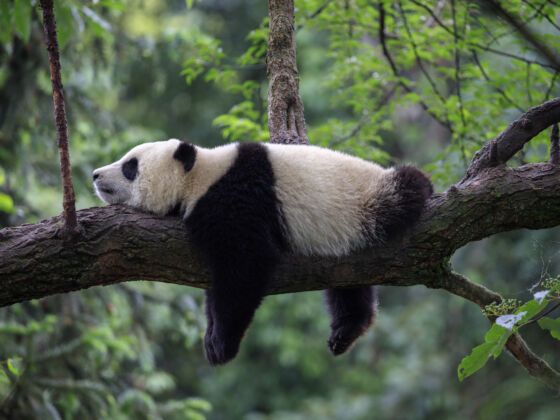FOR $150, I COULD hold a panda for 20 seconds. For $300, I could play with some one-and-a-half-year-old pandas for about two minutes. And for almost $1000, I could play with six-month-old panda cubs for about five minutes.
I was standing in a shack in the middle of the Bifengxia panda reserve, located in the western mountains of China’s Sichuan province. We were a two-hour drive from the regional capital of Chengdu and a much longer flight to my home in New York.
